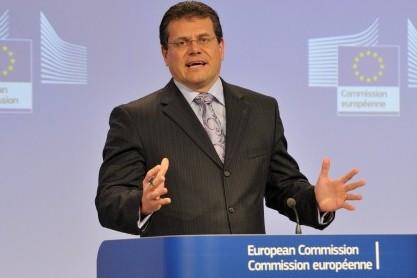Recently, a decisive step has been taken to clarify the set-up conditions for EU-Agencies through a common agreement by the EU-Institutions. The agreement will improve the agencies' governance and make them more effective.
Recently, under the Danish EU-Presidency, Commissioner Maroš Šefčovič made a decisive step to clarify the set-up conditions for EU-Agencies, as the EU-Institutions have agreed on a joint statement and common approach. This agreement has been under discussions for a long time, which now sucessfully have been brought to a conclusion. The agreement will improve the agencies' governance and efficiency, and make them a more effective tool in implementing the policies of the EU. The next step is that the agreement now will be formally endorsed by each EU-Institution (Council, European Commission and European Parliament.)
What is the impact?
For many citizens, agencies are the closest visible presence of the EU in their lives and in their Member State. Yet, their ad hoc set-up, ranging of several years has not been accompanied with an overall vision of their position in the EU. The EU’s common approach will now remedy this, and gradually streamline the EU-Agencies. This new, common approach clarifies the conditions (the framework, funding, structure, supervision, management issues, set up, location, etc) for decentralised EU-Agencies. As such, by deciding on this common approach for all EU-Agencies, it will make the EU more democratically transparent, as well as to make the agencies function more efficiently, to make the best use of tax payers’ money.
Key points of the agreement
The common approach contains a range of improvements for EU-Agencies, including:
-the need for an objective impact assessment before EU-Institutions are deciding to create a new agency,
-criteria for the choice of the seat and headquarters arrangements,
-regular overall evaluations (every five years) and
- the introduction of sunset or review clauses foreseeing the option of merging or closing down agencies,
-ex ante and ex post evaluations of the agencies' programmes/activities,
-the development of key performance indicators,
-a multi-annual programming to be linked with multiannual resource planning,
-a stronger link between actions performed by the agency and human and financial resources,
-a streamlined governance structure and making it clear who does what.
The Commission will propose a roadmap for implementing this agreement by the second half of 2012, taking into account the unique features of each agency.
For more details, please refer to the original EU Commission press release available in EN/FR/DE/DA

